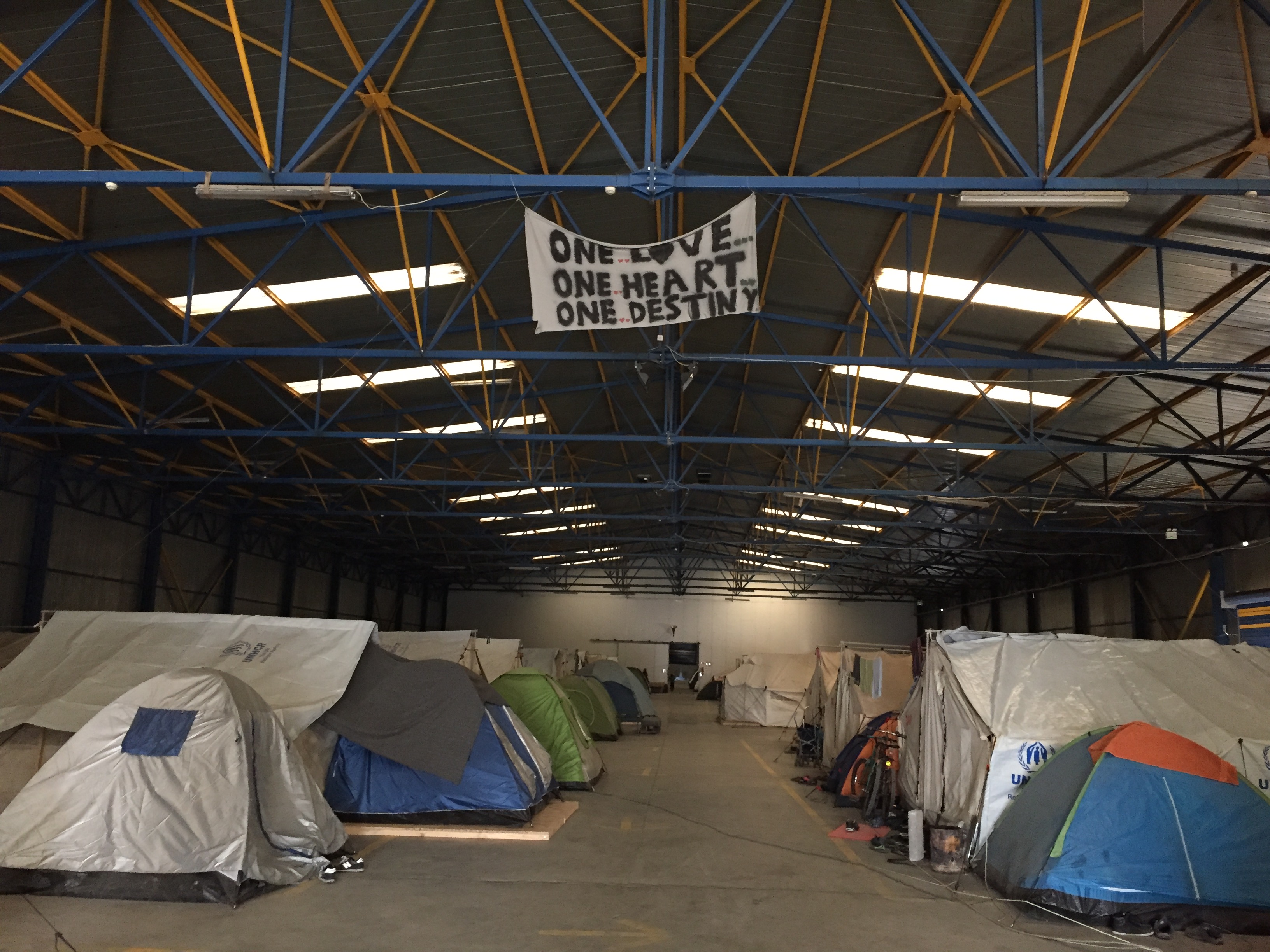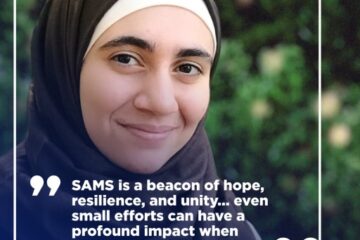December 23, 2016
I would like to make a note to the reader, that this report is intended to not simply raise awareness, but more importantly to promote pro-activity to push for better living conditions in the Syrian refugee camps. 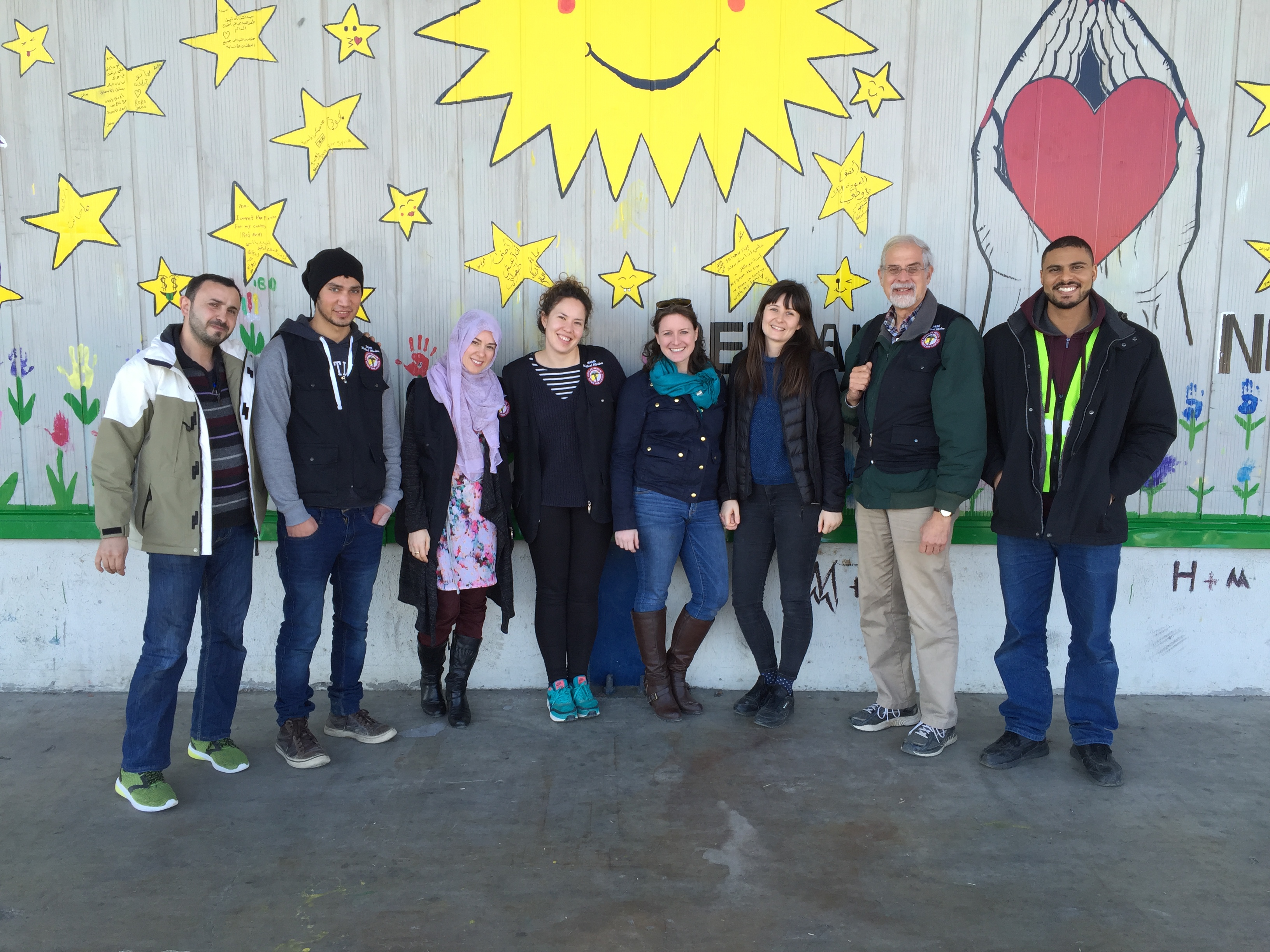
There are currently two categories of Syrians directly affected by the war; the first and most obvious are those still in Syria. Those who we constantly see footages of via the news and social media, those who remain in the besieged cities experiencing the formidable consequences of air strikes, shootings, and witnessing death and destruction all around them – those still living within the war itself. The second category is comprised of displaced Syrians who have left the war, and are now at the mercy of the realities within refugee camps. This is the war not as frequently depicted on the news or social media, and is one that must be brought to light.
Since the Syrian civil conflict began, many Syrians have left in the hopes of seeking refuge and safety for their families in neighboring countries, with the majority attempting to reach European countries via the Turkey-Greece pathway. Due to the recent boarder closures by the European Union, however, thousands are now stuck in refugee camps in Southern and Northern Greece, as they cannot go forward into Europe, or back toward the war. I have had the opportunity to work and interview refugees in various camps in Northern Greece, and will share what I have learned about the living conditions there, and the most commonly reported issues.
The camps in Northern Greece are located in large warehouses, where each family has its own tent. These warehouses are typically located in secluded areas of the city, making it difficult for the refugees to go out and interact with the “outside world.” One of the most current and significant problems is that the warehouses do not have any form of heating. It is winter, temperatures drop close to 0C°, and families have nothing except for blankets to keep themselves warm at night. The adults explain that they have no choice but to handle it, but it is the children and new-borns who are truly suffering from the cold conditions.
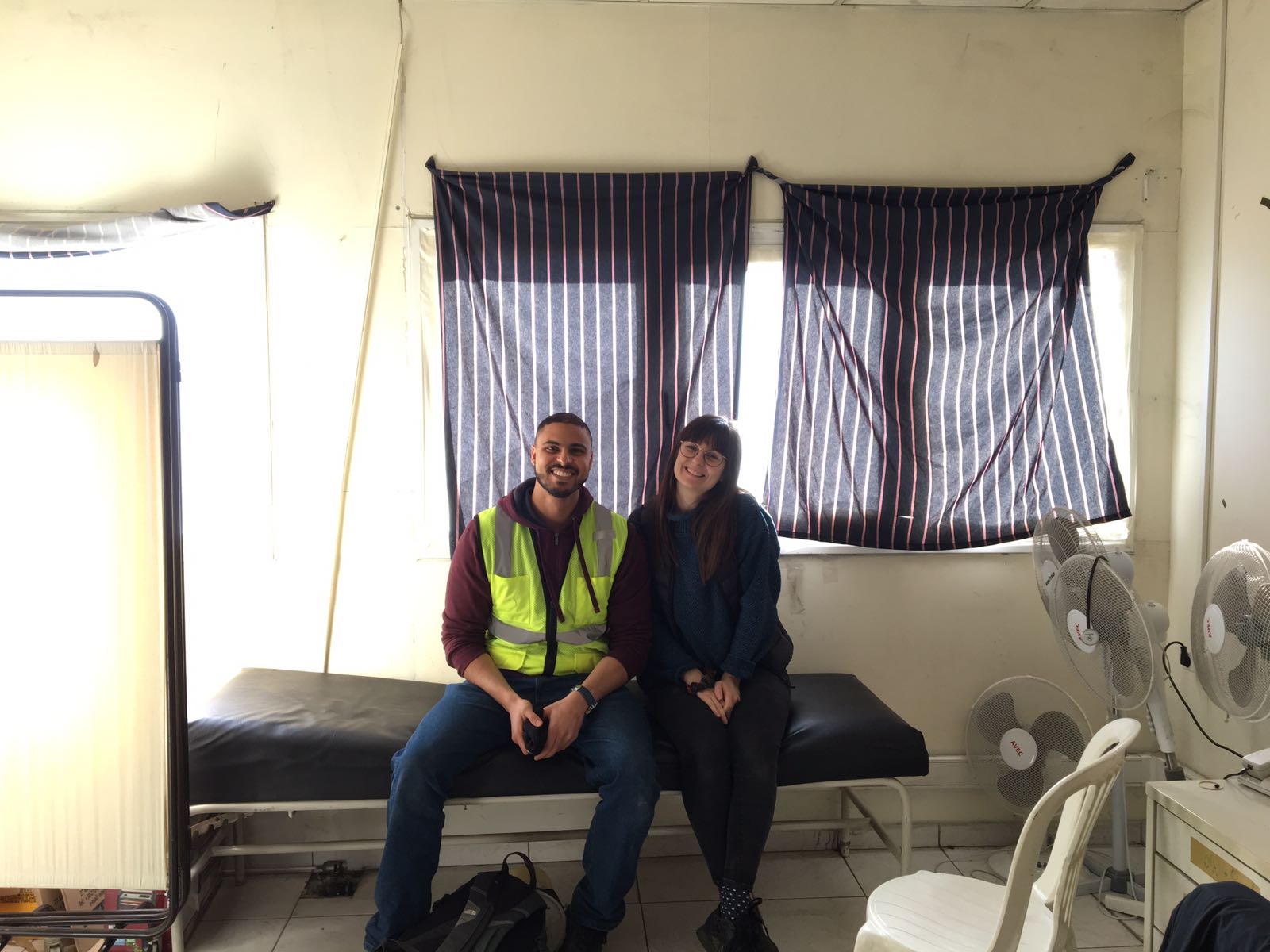 Children are constantly crying at night from the cold, defecate inside the tents because it is too cold and dark to walk outside the warehouse to use the facilities, and many are developing respiratory tract infections and viruses. Since the majority of the symptoms we see in the camp clinics are induced by the cold, it is heartbreaking when, at the end of a patient’s consultation, we have no option but to say “your symptoms will likely continue until it starts to get warm.” For a while now, the current non-governmental organizations (NGOs) on site have supposedly been preparing for winterization, and stated they would install heating appliances for the families in the warehouses. However, winter has been here for 2 months and still nothing has been done in that regard. The warehouses must be provided with heating equipment as soon as possible, as there is still a long time until the end of the winter and it is only going to get colder!
Children are constantly crying at night from the cold, defecate inside the tents because it is too cold and dark to walk outside the warehouse to use the facilities, and many are developing respiratory tract infections and viruses. Since the majority of the symptoms we see in the camp clinics are induced by the cold, it is heartbreaking when, at the end of a patient’s consultation, we have no option but to say “your symptoms will likely continue until it starts to get warm.” For a while now, the current non-governmental organizations (NGOs) on site have supposedly been preparing for winterization, and stated they would install heating appliances for the families in the warehouses. However, winter has been here for 2 months and still nothing has been done in that regard. The warehouses must be provided with heating equipment as soon as possible, as there is still a long time until the end of the winter and it is only going to get colder!
In addition to the cold and resultant illnesses, some of the camps have become a breeding ground for gangs. These gangs typically include young males between the ages of 18 and 30, and threaten the safety of everyone living in the camps – young and old. I’ve spent time in camps where there were stabbings and nightly fights, and it was not uncommon to see men in the morning with black eyes or bruised faces. Children as young as 6 years’ old are being sexually abused and assaulted, or are being held up with a knife to their throat. Nobody, let alone a child, should have to endure this pain! Many of the children I have assessed have developed psychological disorders, commonly manifesting in the form of night-terrors, loss of the ability to speak, and bed wetting. When visiting the tents, I met a woman who had a bag full of diapers for her children, despite her youngest being 8 years old. Each camp is typically monitored by the local police situated right outside the warehouses. However, the police never gets involved when heinous activities, fights, and abuse are being committed inside the warehouses. An older gentleman in one camp told me that “they (the police) do not care if we die or kill each other inside the warehouse, as long as we do not cause problems outside. There is no one to protect us from these gangsters.”
A painful commonali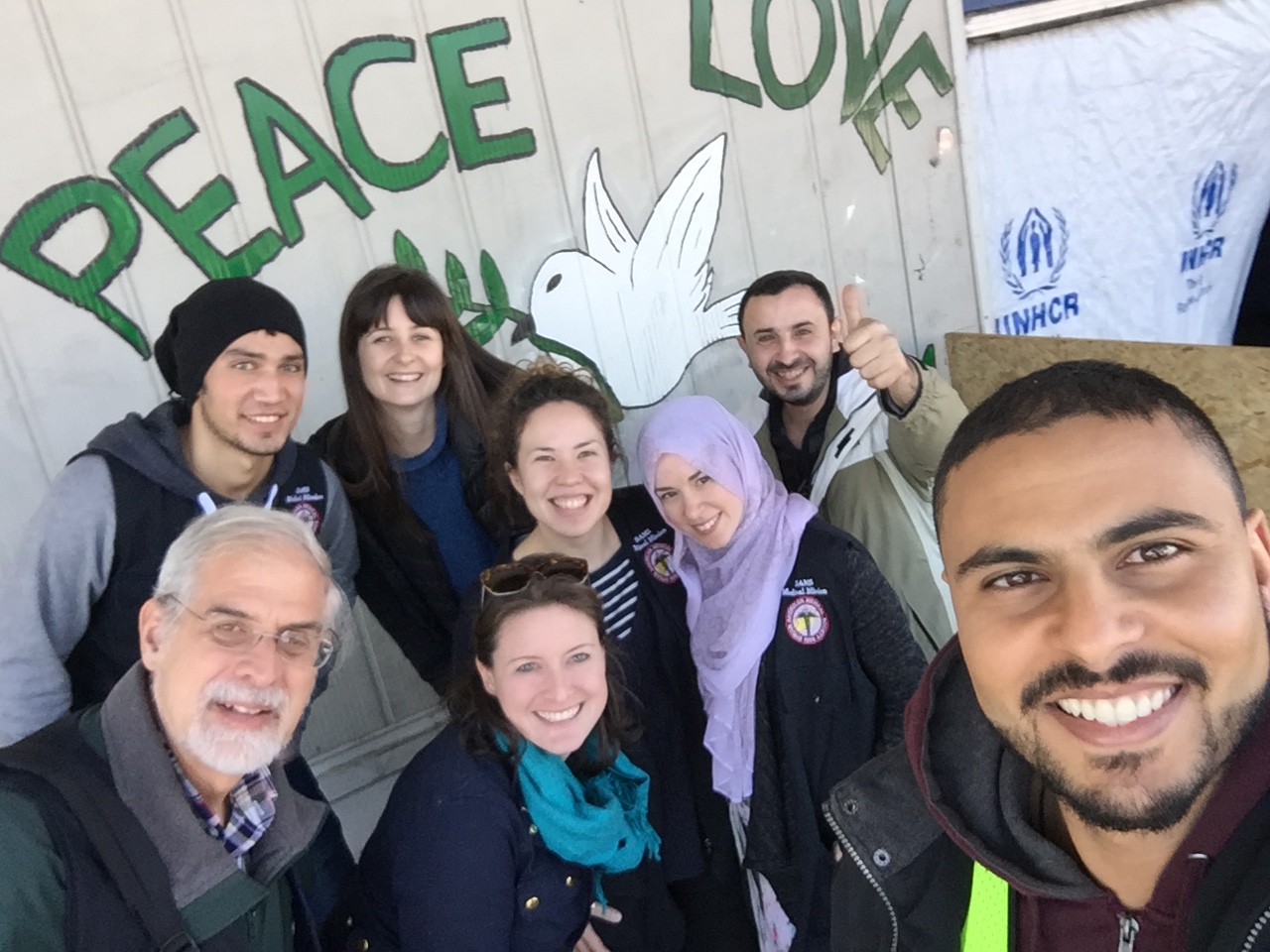 ty in every refugee I have interviewed is a sense of despair, and loss of purpose. They are all spending each day exactly like the one before: sitting in the warehouse and waiting for the day to pass. Try to imagine having everything stripped away from you, losing total control over your life, not being able to positively contribute in any way to your own life or those around you, not having the resources to learn or go to school, and not being allowed to work. You lose all sense of value and purpose, and this reality is a slow killer. You are breathing but not living, you become a body without a soul, and your desire to live, weans. I interviewed a woman who was pregnant and had a miscarriage in the camp. She experienced severe vaginal bleeding for weeks before she was finally seen by a doctor in the hospital, at which point she was told that her baby had died and had to be aborted. What was tragic about this wasn’t even the miscarriage, it was that the woman was actually relieved that her baby had died; she explained, “how was I going to raise my baby in these living conditions? It is better that it died.” Another common thought among the refugees I interviewed is that they never would have left the war had they known that life outside would be like this. I asked how they could say that, knowing that they would be living under constant bombings and killing, and that they and their families would likely die there. The typical response was that “at least I would know when death is coming and it would be a one-time death, but here in the camps, you are dying slowly every single day, no one cares about you, no one asks about you, and even street animals get better treatment than we do.” A woman I interviewed compared the camps to graveyards, she said “there is no life here, every tent you see is a grave, you’re just dying slowly in them.”
ty in every refugee I have interviewed is a sense of despair, and loss of purpose. They are all spending each day exactly like the one before: sitting in the warehouse and waiting for the day to pass. Try to imagine having everything stripped away from you, losing total control over your life, not being able to positively contribute in any way to your own life or those around you, not having the resources to learn or go to school, and not being allowed to work. You lose all sense of value and purpose, and this reality is a slow killer. You are breathing but not living, you become a body without a soul, and your desire to live, weans. I interviewed a woman who was pregnant and had a miscarriage in the camp. She experienced severe vaginal bleeding for weeks before she was finally seen by a doctor in the hospital, at which point she was told that her baby had died and had to be aborted. What was tragic about this wasn’t even the miscarriage, it was that the woman was actually relieved that her baby had died; she explained, “how was I going to raise my baby in these living conditions? It is better that it died.” Another common thought among the refugees I interviewed is that they never would have left the war had they known that life outside would be like this. I asked how they could say that, knowing that they would be living under constant bombings and killing, and that they and their families would likely die there. The typical response was that “at least I would know when death is coming and it would be a one-time death, but here in the camps, you are dying slowly every single day, no one cares about you, no one asks about you, and even street animals get better treatment than we do.” A woman I interviewed compared the camps to graveyards, she said “there is no life here, every tent you see is a grave, you’re just dying slowly in them.”
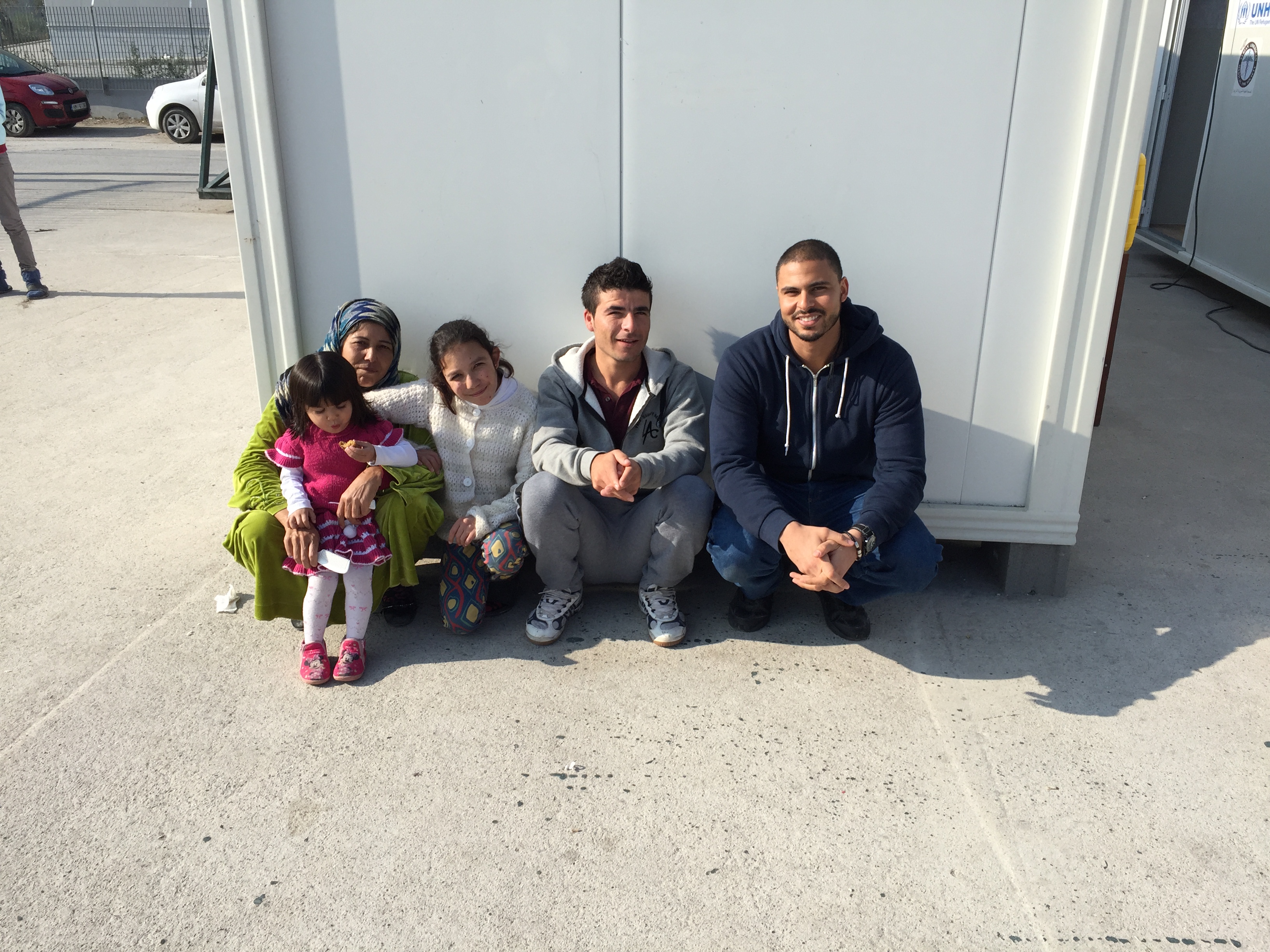 According to the refugees living in the camps, the most important thing for them at this point is to get out and attain asylum in a neighboring country. It is the only way they can start to feel human once again. However, many are waiting for their asylum interviews, not knowing when it will be – it could be a month, year, or even years. This uncertainty is adding to the emotional and psychological turmoil within the refugees.
According to the refugees living in the camps, the most important thing for them at this point is to get out and attain asylum in a neighboring country. It is the only way they can start to feel human once again. However, many are waiting for their asylum interviews, not knowing when it will be – it could be a month, year, or even years. This uncertainty is adding to the emotional and psychological turmoil within the refugees.
I’m afraid that reading this article only gives you a fraction of the full story, but it is necessary for the public to recognize that living in the camps is another battle the Syrians are fighting. Their journey of oppression, injustice, and cruelty has not ended by their fleeing Syria, it is just in a different form. If you read this and you are feeling helpless or hopeless, please don’t! It is true we have not done much to stop the war, and I even sometimes ask myself what we can do collectively about it, but we can certainly help the displaced refugees by improving their living conditions, and give them their humanity back.
You have the power and the responsibility to do something to help the displaced Syrians, and below are some suggestions of things you can do to help:
- Urge NGOs such as UNHCR, Unicef, Swiss Cross and Islamic Relief to install heating devices in the warehouses for the winter. It is needed now more than ever.
- Donate to/support medical and health-based NGOs such as the Syrian American Medical Society – Global Response (SAMS-GR) and Médecins Sans Frontière/ Doctors Without Border (MSF) and Save The Children. Funding raised allows them to attain resources such as medications, medical equipment and further expand medical facilities for the growing body of refugees. And make sure your donations go to the right sources.
- If you have any specialized training, then you can help in anyway. If you are a doctor, engineer, psychologist, banker, teacher, film maker, writer, whatever you are, use your skill and resources to improve the quality of life of these individuals. Every person has a gift, and every person is capable of doing something.
- Go volunteer with any of the NGOs in the camps, but volunteer in a place where you and your skills can be utilized efficiently and effectively. Too much bodies and help can sometimes be a drawback.
- Most importantly, push your governments to open the doors for the refugees. Do not think that your one letter wont make a difference, do not think that you have no power over this, do not think that the refugees will come into your country and “steal your jobs”. Every single one has the power and ability to save a life, but only if you choose to.
Written by: Dr. Hisham Sharif, SAMS Global Response Volunteer
Edited by: Sarah Moritz
